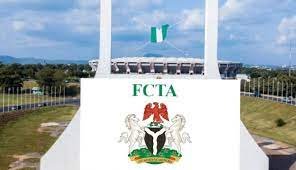The Federal Capital Territory Administration (FCTA) Thursday raided several unapproved parking zones in Abuja metropolis.
The Command and Control Centre (CCC) of FCTA said the raid became imperative to rid the City Centre of various traffic infractions and harbouring one-chance syndicates and beggars.
The joint operation involved the Nigerian Police, Nigeria Security and Civil Defense Corps (NSCDC), Department of State Security (DSS), Immigration Service, Correctional Service, National Drug Law Enforcement Agency (NDLEA), Directorate of Road Traffic Service (DRTS), Abuja Environmental Protection Board (AEPB), Social Development Secretariat (SDS) and other relevant agencies in the FCT.
The raid was part of a holistic operation to ensure free movement for every resident of Abuja at every point of time as well as curb the menace of one chance and street begging.
The Secretary, Command and Control Centre, FCTA, Mr. Peter Olumuji, said the team, which acted on intelligence from relevant security and paramilitary agencies, dislodged the one-chance syndicates, who coveted unpainted taxies and operated in park locations not earmarked for parking of vehicles in the city.
His words: “The enforcement team is all out to ensure that we raid any location that harbours indiscriminate parking, as we have been receiving reports about one chance, and the security agencies with us have been giving us credible intelligence on this issue. That’s why we have to go round the city and dislodge these unapproved parking zones.
“And beggars can also be used as a platform to gather information for criminal activities as well as constitute public nuisance within the city centre,” Olumuji said.
Also, Deputy Director, Operations, DRTS, Deborah Osho, disclosed that the team impounded no fewer than 15 vehicles from different locations within the city centre, for varying traffic rule violations, including rickety vehicles that were not supposed to ply the road.
She noted that apart from the illegal parks constituting serious traffic obstruction, the operators were also dividing and occupying major road corridors, including pedestrian ways, thereby disrupting the free flow of traffic.

